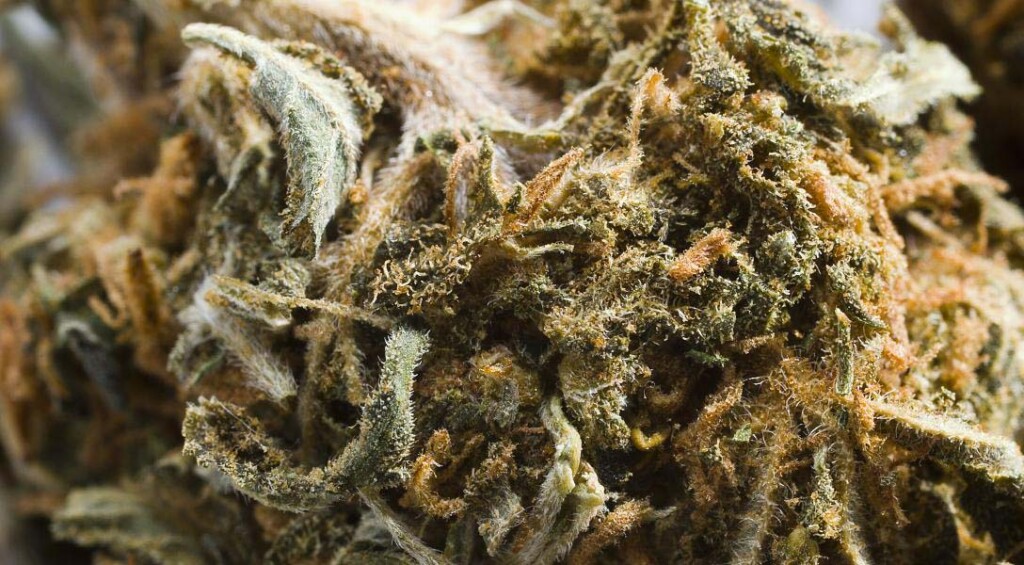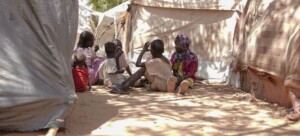Drug abuse in Sudan: Port Sudan worries about crystal meth use among youth
People in Port Sudan ring the alarm bells over the increased crystal meth use among youth. Security forces are doing little to combat the spread and professional treatment is expensive, so activists have been forced to set up their own grassroots initiatives.
 Crystal Meth (Blickwinkel)
Crystal Meth (Blickwinkel)
Cannabis / marijuana (File photo: DEA.GOV)
People in Port Sudan ring the alarm bells over the increased crystal meth use among youth. Security forces are doing little to combat the spread and professional treatment is expensive, so activists have been forced to set up their own grassroots initiatives.
As Radio Dabanga recently explored in a feature article, Sudan is witnessing a growing drug abuse epidemic, exacerbated by political and economic hardships and a lack of faith in the future. Especially youth are at risk.
Port Sudan is not excluded from this wider trend, but its geographical location and recent violent events seem to have increased the access to and need for drugs. There is a state of anxiety among the residents of Port Sudan regarding the abuse of crystal meth (ice) in particular.
At the end of last month, journalist Mohamed Ahmed El Kabashi told El Intibaha online newspaper that Port Sudan is in danger. After conducting a field investigation, he reported his shocking finding that “hardly any neighbourhood of the city survives the drug disaster”.
‘Hardly any neighbourhood of the city survives the drug disaster’ – Mohamed Ahmed El Kabashi
“The misuse of ice (crystal meth) has reached the point where one of them injects himself with the blood of another user in case he cannot get the drugs,” psychologist Nuseiba Mutasim, working at the Port Sudan Psychiatric Hospital in the capital of Red Sea state, told 3Ayin online news last week.
Mutasim links the increase to the period of conflict in the state in 2019 when ethnic violence erupted in August and December, only to be repeated again in August 2020.
She explains that the conflicts “made young people escape reality by using drugs,” although there are no accurate statistics on the percentage of drug users. “But by virtue of my presence in the Psychiatric Hospital in Port Sudan, I can say that there is a large number of drug users entering the hospital,” she told 3Ayin News.
El Kabashi also noted the lack of official statistics but explained that “according to an unofficial statistic, the percentage of abusers of all kinds of drugs among young people is about 45 per cent”.
The head of the technical team of the Drugs Combat General Management, Brig Motasim Ibrahim said that the available statistics on drugs in Sudan do not present the reality because they are based on the drugs that are seized only while the number of drugs that are not seized is many times higher, he told the Blue Nile TV channel in June.
Stage of no return
Crystal meth is one of the most prevalent drugs that is causing problems in Port Sudan. It is facing some competition from heroin, but ice is particularly worrying to healthcare professionals because it is even more addictive.
Ice has ‘no stage of return’; the abuser can become addicted from the first dose, whereas heroin usually needs to be used several times before addiction occurs.
Mutasim also explained that users have easy access to the drug because sellers are often individuals close to the circles in which young people operate.
Social activist Omar Tarig Baraka also told 3Ayin News that in the past, drug abuse was linked to age groups between 20 and 30 years old. At the moment, however, he sees abuse start in groups as young as 12 years old.
Lack of prosecution
According to residents of the city, the authorities refrain from prosecuting traders under the pretext of ‘fearing ethnic violence’.
Baraka also noted the absence of security forces in combating drug use and limiting the entry of new types of drugs into the city, making it easier to sell or access drugs.
The lack of action is angering local activists who want to avoid more youth falling prey to drug addiction.
Some activists link the situation to a war. “The war is no longer with bullets but is a war of drugs and an end to values, youth, and culture. We must all fight that,” Kamal Mohamed Ali, a social activist in the Deim El Arab neighbourhood, said.
Treatment, however, is expensive. This has forced activists to launch their own grassroots initiatives to combat drug abuse.
Ali told 3Ayin News that the initiative he is a part of has begun to work in the most affected areas, “and we will not stop until the drug threat facing our societies has gone”.
“What prompted us to set up the initiative is that drugs entered respectable families, and we saw how drugs affected their children, but also that drug treatment is expensive,” he explained.
Ali explained, however, that the geographical location of Sudan’s Red Sea state is a huge challenge in the fight against drugs. Red Sea state borders Egypt and Eritrea and has several harbours, which make for easy international gateways for drugs to enter the country.
He said that the security forces, even if they were to crack down on drugs more, do not have the ability to cover all these borders.
‘Many of the smugglers we caught would later be released following orders from the top’ – former anti-drug unit officer
Corruption
In the Radio Dabanga feature, corruption was also highlighted as a big problem leading to the lack of prosecution. Former coast guards and police officers told Radio Dabanga that it was not uncommon for them to discover smuggled drugs but then find out that those responsible had ties to government officials.
“Many of the smugglers we caught would later be released following orders from the top,” said a former anti-drug unit officer in South Kordofan.











 and then
and then